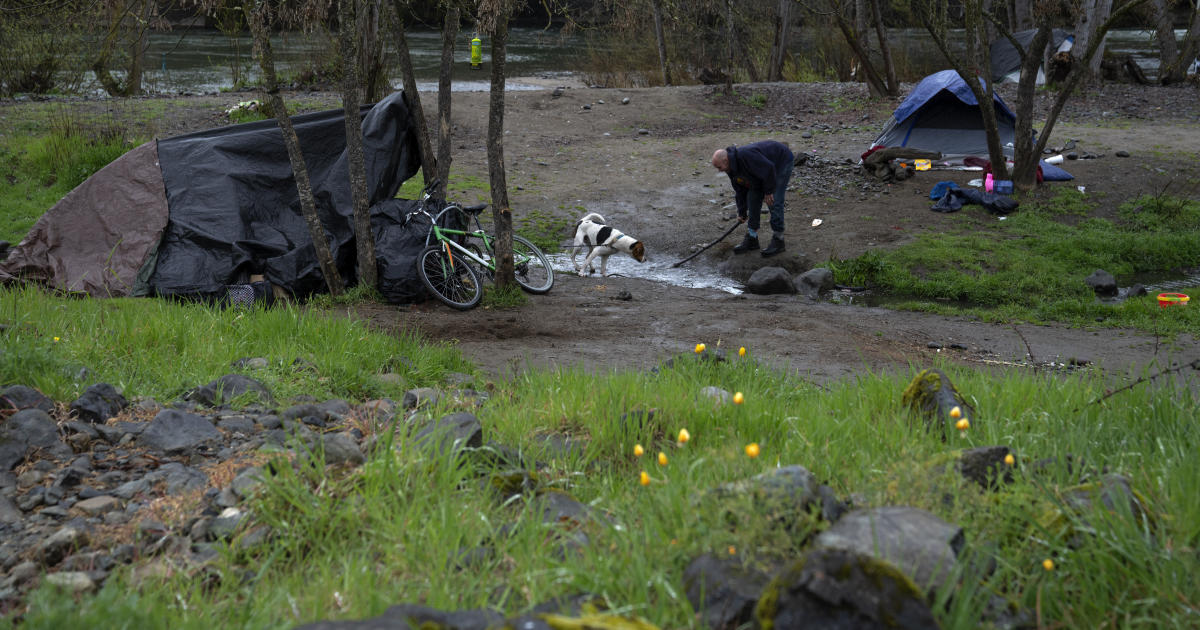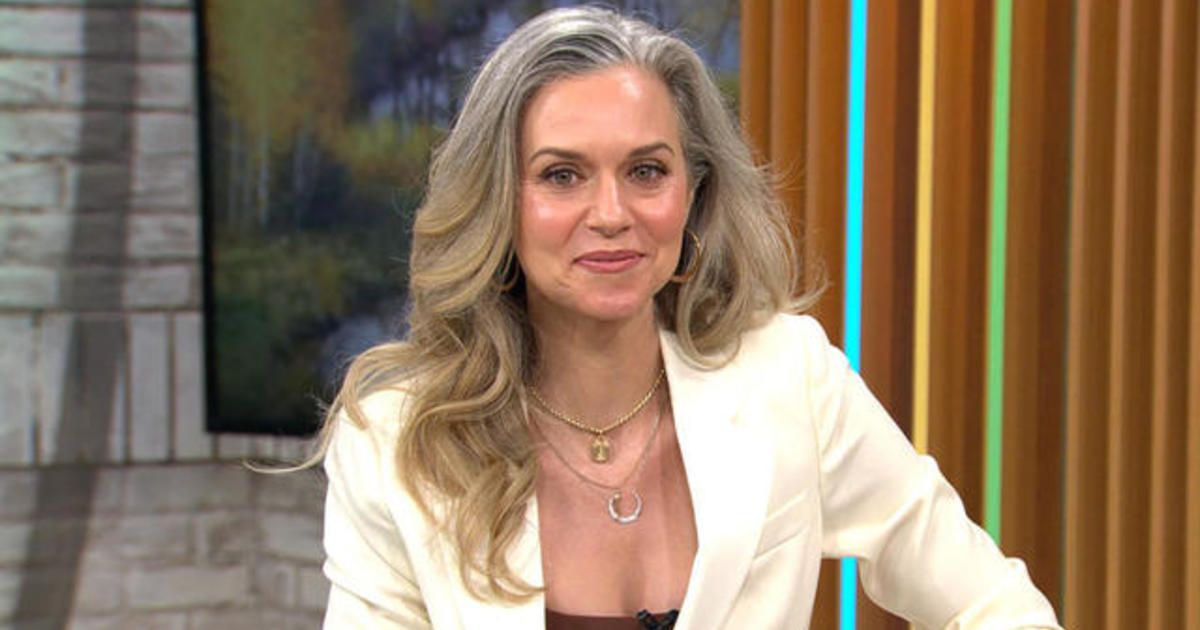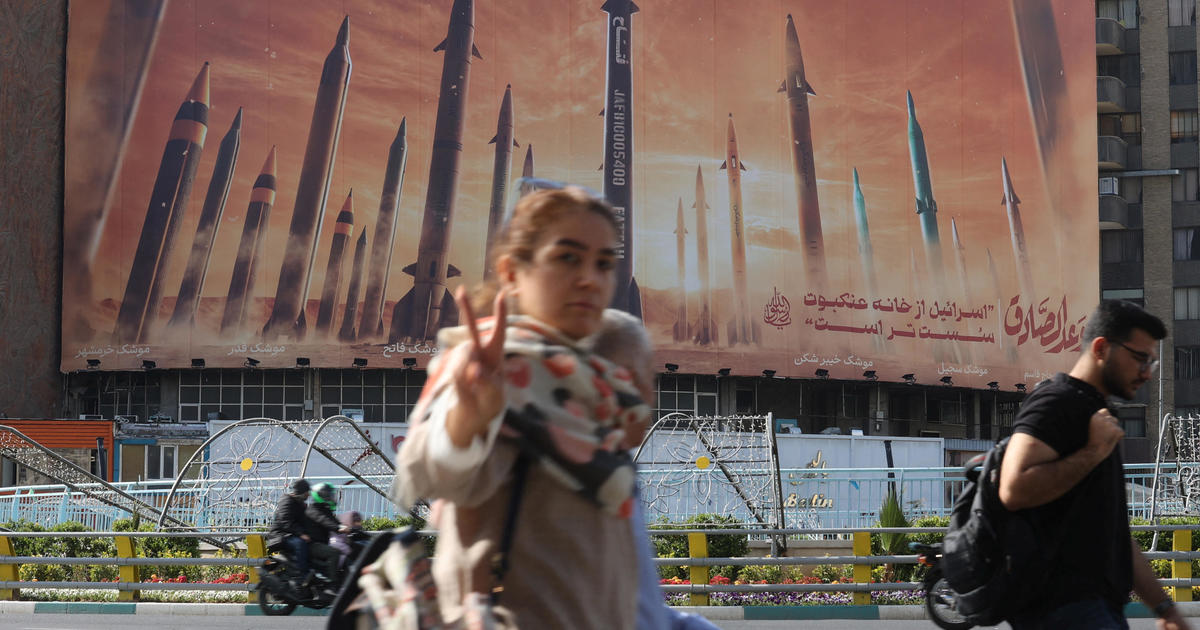Transcript: Lonnie G. Bunch III on "Face the Nation," June 20, 2021
The following is a transcript of an interview with Lonnie G. Bunch III, secretary of the Smithsonian Institution, that aired Sunday, June 20, 2021, on "Face the Nation."
SMITHSONIAN SECRETARY LONNIE BUNCH III: Juneteenth is really a special moment. It's a moment that is really the first holiday we have that celebrates freedom, that is really about helping us understand the fragility of freedom, the importance of freedom and the struggle for freedom. There's always been this moment. But to suddenly say this is really about helping a nation remember something that it often doesn't want to remember. And helping a nation honor those people who were enslaved, but they believed in an America that didn't believe in them. This is a special moment for me. I'm very emotional about Juneteenth and.
JOHN DICKERSON: You've dealt with the federal government. Were you surprised how fast this happened at the end?
BUNCH III: I'm always surprised when things move quickly with the federal government. I think what it tells us is the impact of the last year of people recognizing that issues of race are not owned by a single community, but rather they shape us all. And I think that was a profound sense that it was important to remember that America as a nation has grappled with some of the great- some of its most difficult moments and has made effective change. So this is both a celebration of change, a celebration of freedom, a celebration of a community. And quite candidly, for a historian, it's a wonderful embrace of the importance of history.
JOHN DICKERSON: There is a grappling with how to tell and how much of the story to tell about slavery that was knit into the very beginning of the country. How do you look at that debate and where it stands?
BUNCH III: I believe strongly that you cannot understand America without understanding slavery, that our notions of freedom, our notions of liberty are juxtaposed with our notions of enslavement. And so I think that it's not about pointing blame, it's not about remembering difficult moments just to hurt. What it is about is to say a great nation understands itself, understands itself in a complex way. And by not grappling with slavery, we are really not telling not only a true history, what we're not telling a true story of ourselves. The debates show that history is not about yesterday, but it's about today and tomorrow. And so what I'm grateful for as a historian is the opportunity to teach, to share these stories, to share these histories, because I have to be honest, when you look at the story of slavery, one of the things that always struck me is there were people in many communities didn't want to talk about it or were embarrassed by it. But I'll tell you, I wish I was as strong as my enslaved ancestors if I was as strong as they were, what a world we could make. And so I want us to honor that strength by remembering and telling their stories.
JOHN DICKERSON: Because a truer story is a more nourishing story.
BUNCH III: A truer story is a story that helps us do a couple of things. It helps us as a nation embrace ambiguity. We far too often look for simple answers to complex questions, and slavery is nothing but complex. But it's also a way to understand notions of where people across racial lines to try to help the country live up to its ideals. You have people who sort of struggled for generations but believe that freedom was important. I think always it always struck me as I did research on slavery is they'd always say that in the quarters in in the small cabins, they were always talking about freedom. It really was the sort of thing people believed in when they shouldn't have believed in it.
JOHN DICKERSON: Let me move now to the present day. What are the museums here collecting today for tomorrow?
BUNCH III: What I think is important for the Smithsonian is to recognize that we have to make sure that America remembers. And one of the ways to do that is to collect these stories, to collect these important artifacts so that maybe we won't even use them for the next 20 years. But somehow a curator or historian will be able to really look and say January 6th is important. We recognized the need to have kind of what I call the rapid response team to really think about are there issues that are really important that we should collect? So whether it was January six, having people out there collecting posters and banners that people put together, but later collecting broken bits of furniture, things that reflected the damage, because I think that's an important story.
JOHN DICKERSON: How fast did that rapid response team get out there?
BUNCH III: Well, they were out there within a day, you know, and so it was really important to do that. And we did that for many other things.What we were able to do is to bring people together and both collect rapidly, but to collect in a way that was cognizant of the people that we were dealing with. So, for example, we collected a lot of the demonstrations around Black Lives Matter that happened down here in Washington, in Lafayette Square. But rather than just go in and take everything, we worked with the community, we talked to people who were leading these demonstrations to say we want to make sure we collect stories that reflect your points of view. And so we left things up. We didn't go in and just take- because we want to be a fair partner. And then we did the same thing with the pandemic. We knew that this notion of, you know, obviously America being shut down over a virus is crucially important. I remember seeing pictures of the flu epidemic in 1918 and thinking we need to make sure we document that. And so the brilliant staff, collected amazing things. The- the first vial where the vaccine was given in New York City, they have that one of the early nurses who got one of the early shots. We have her scrubs and her vaccine card and Dr. Fauci gave us sort of a model of the coronavirus that he used. So the key is to think about how do you document today so that people who don't know this story will be able to understand it a generation, two or three generations from now?
JOHN DICKERSON: Is the goal not just to get an artifact, but to curate something that has embedded in it the meaning of the thing itself?
BUNCH III: Artifacts don't speak by themselves. And so if you collect the stories, if you work with community to understand why certain posters were so important to people, I think that gives you a richness that allows you to engage people to bring history to life. We need to make sure that we're telling stories from multiple points of view.
JOHN DICKERSON: Now, it used to be with historians that you had to wait 50 years. George W. Bush used to say, I don't care, history will figure it all out after I'm dead. What happened to that view of history or where does that fit in a world of rapid response museum collectors?
BUNCH III: I was trained that way. You know, you don't collect anything unless it happened 50 years ago. I became a better historian when I began to talk to the living community. And so it made me realize that if we collected things today and talked to the community, there's a richness that that has, there's documents, there's facts that that has. So while I think there is something very powerful about having distance, I think it's also important to make sure that you have the stuff you've collected the oral interviews that somebody that can use 50 years from now with their own distance. But for me, it's about making sure we collect today for tomorrow.
JOHN DICKERSON: Has something changed about collection? Because we now have in our hands, in these smartphones that are turning us all into curators and collectors. I think particularly, of course, of George Floyd, the video of that, how does that shape and change the job of the museum?
BUNCH III: It makes you realize that there are a lot of historians out there. There are a lot of people that can capture images that can help us think about things in different ways. And I think this new technology has challenged us to be more flexible, to be more nimble. But it also allowed us to have more interaction with a variety of communities because, you know, they're not thinking about how this is going to be written in 50 years. They're thinking about what happened right that moment. And it's powerful to have that.
JOHN DICKERSON: Secretary Bunch, thank you so much for being with us.
BUNCH III: Thank you. My pleasure.



